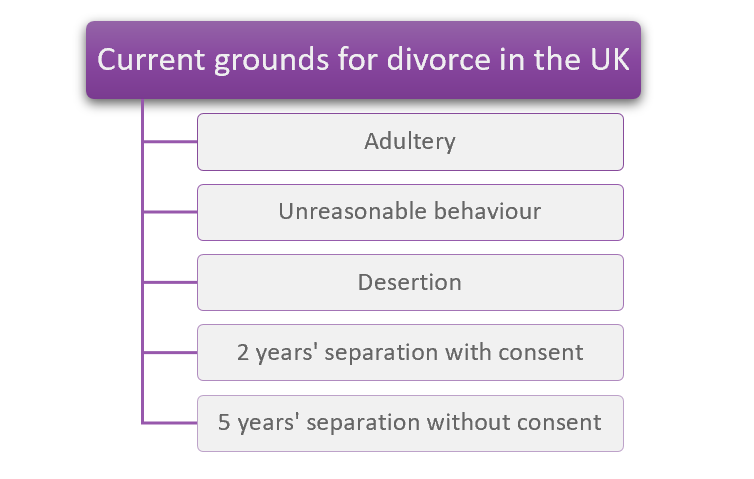Couples and lawyers alike have been eagerly awaiting confirmation as to when the no-fault divorce legislation would come into force. Previously, it had been indicated that the legislation would come into force in Autumn 2021, but following Monday’s announcement, it has been pushed back to Spring 2022.
Although a setback in terms of timing, the announcement finally gives couples who have been waiting to get divorced, without playing the ‘blame game’, a degree of certainty as to when they can start proceedings and, therefore, start planning their future.

So, what does this new legislation mean for divorcing couples?
Many couples wish to get divorced quickly and without having to cite any form of bad conduct in their divorce petition. No bad conduct has occurred in some cases, and the couples have drifted apart or fallen out of love. Therefore, no blame is to be applied. However, no fast solution has been available to date, and couples have had to either wait for two years and divorce on the grounds of two years’ separation with consent or cite grounds such as unreasonable behaviour on their divorce petition.
Lawyers have recognised for many years that citing a party’s bad behaviour in a divorce can cause unnecessary emotional damage to couples and their children, particularly where they hope to co-parent together. In addition, where the parties must agree on a financial settlement and child arrangements, starting the divorce on a negative footing can hamper progress in resolving these matters amicably.
“THE COURTS DO NOT TAKE BAD CONDUCT INTO ACCOUNT WHEN DECIDING ON HOW THE ASSETS SHOULD BE DIVIDED UNLESS THE MISCONDUCT IS FINANCIAL AND IT WOULD BE INEQUITABLE TO DISREGARD TO IT.”
Pippa Marshall, Family Lawyer at RIAA Barker Gillette (UK) LLP
No-fault divorce is not expected to lead to an increase in divorces. It may, however, mean that there will be an influx of cases when the legislation comes in in April 2022, as couples may wait until then to start their divorce.
The divorce process will not be any quicker than it currently is. There will be a six-month period before the parties can apply for the final divorce certificate (decree absolute).
If you are considering getting divorced, we would be happy to advise whether it is worth waiting until April 2022. Each family situation is different and has its own challenges, and it may or may not be appropriate to wait, depending on your circumstances.
Contact family solicitor Pippa Marshall today for advice and information on no-fault divorce or any other family matter.
Note: This is not legal advice; it provides information of general interest about current legal issues.
